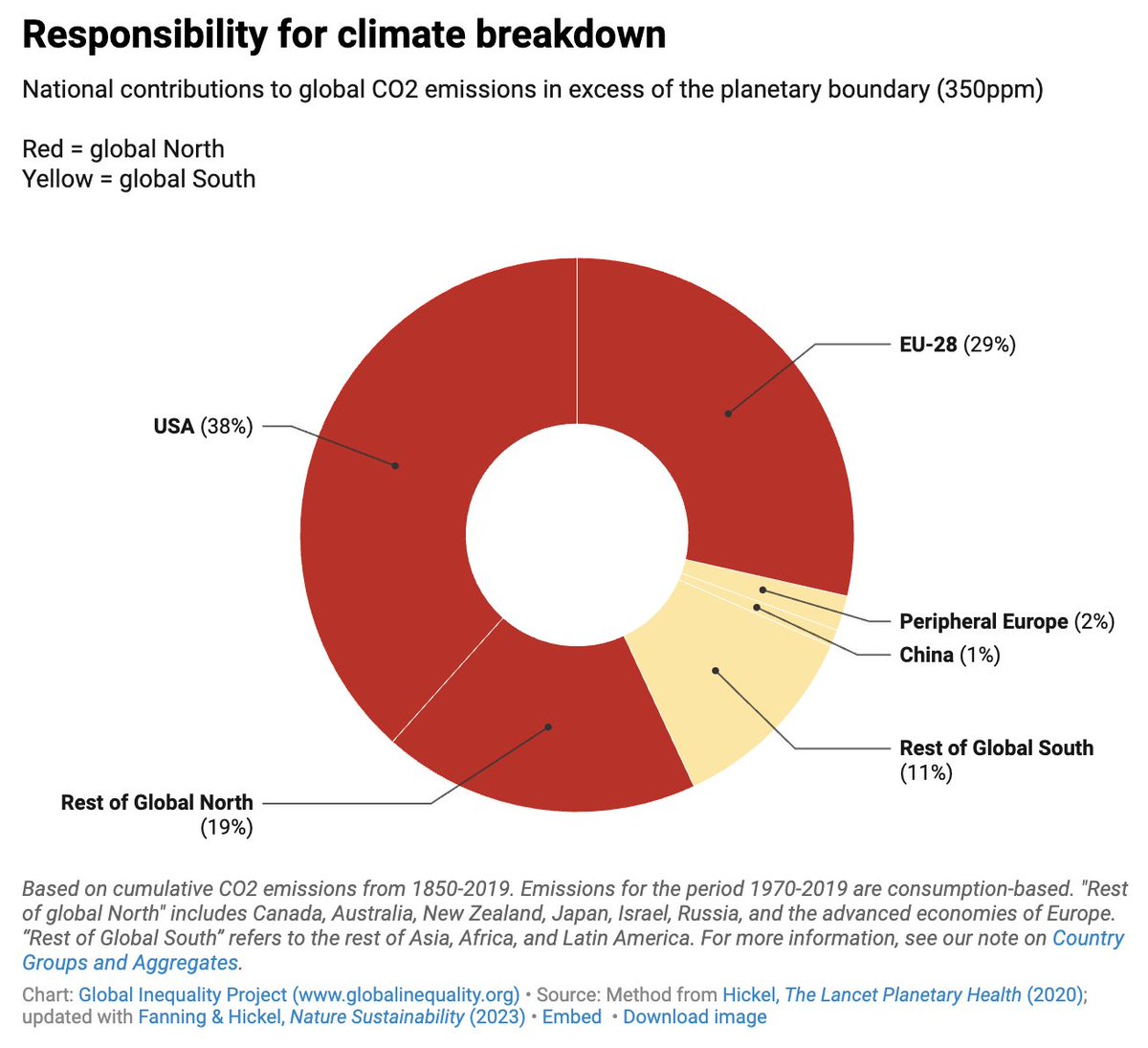Some progressives tend to think of neoliberalism as the disease. For them, all we need to do is go back to a more regulated "pre-neoliberal" form of capitalism.
But neoliberalism is not the disease. It is just a symptom of the disease. The disease is capitalism. Here's why: 🧵
But neoliberalism is not the disease. It is just a symptom of the disease. The disease is capitalism. Here's why: 🧵
First, we need to understand what capitalism actually is. Under capitalism, the purpose of production is *not* primarily to meet human needs. This is no generic economy. Rather, the purpose is to maximize and accumulate profit. That is the core objective.
Toward this end, capital seeks to cheapen inputs—labour and nature—as much as possible. For most of its history, capital brutally exploited workers in the core economies, and relied on imperialism to guarantee a study supply of cheap labour and resources in the global South.
But this arrangement came under threat after WWII. Labour movements in the core succeeded in winning better wages, better working conditions, and a wide-range of public services: healthcare, housing, education, transit...
Meanwhile, in the South, anti-colonial movements overthrew imperialism and began introducing socialist reforms: nationalizing resources, improving wages, building public services, and using tariffs, capital controls and industrial policy to achieve economic sovereignty.
This radical turn dramatically improved the lives of working people, North and South.
But the new regime of fair wages and resource prices made capital accumulation in the core increasingly untenable, triggering a crisis for elites in the 1970s.
But the new regime of fair wages and resource prices made capital accumulation in the core increasingly untenable, triggering a crisis for elites in the 1970s.
As it turns out, capitalism cannot function for very long under conditions of worker justice and decolonization.
For capitalists in the core, it was clear that something had to change.
For capitalists in the core, it was clear that something had to change.
The core states faced a choice: either they could accept the fair wages and decolonization, abandon capital accumulation and shift to a post-capitalist economy... *or* they could attack wages and somehow re-impose the imperial arrangement.
They opted hardcore for the latter.
They opted hardcore for the latter.
At home, they dismantled the unions and shredded public services. They slashed all manner of regulations and protections, in a desperate bid to restore the conditions for capital accumulation. Today we know this as neoliberalism.
Neoliberalism was imposed even more brutally across the South, through structural adjustment programs. They reversed the socialist reforms of the anti-colonial era, cut wages and resource prices, and destroyed economic sovereignty... subordinating Southern economies once again.
This was not some kind of "mistake". Not just bad theory. Neoliberalism was imposed in order to restore the conditions for capital accumulation. It was an orchestrated backlash against the successes of the labour movement and the anti-colonial movement.
This is why, despite 40 years of data on how destructive neoliberal policies are, we are still stuck in this nightmare.
We are stuck because the obvious solution—worker justice, regulation, and economic sovereignty in the South—is inimical to capital accumulation in the core.
We are stuck because the obvious solution—worker justice, regulation, and economic sovereignty in the South—is inimical to capital accumulation in the core.
There is a way out of this nightmare, and that is to abandon capital accumulation as an objective and transition to a post-capitalist economy.
Neoliberalism is just a symptom. If we want to advance we need to deal with the underlying structural problem.
Neoliberalism is just a symptom. If we want to advance we need to deal with the underlying structural problem.
*steady, that is.
We can have a democratic economy organized around meeting human needs at a high standard, where production is socially just and ecologically regenerative. Such a system is possible, but it requires transitioning out of capitalism.
• • •
Missing some Tweet in this thread? You can try to
force a refresh









